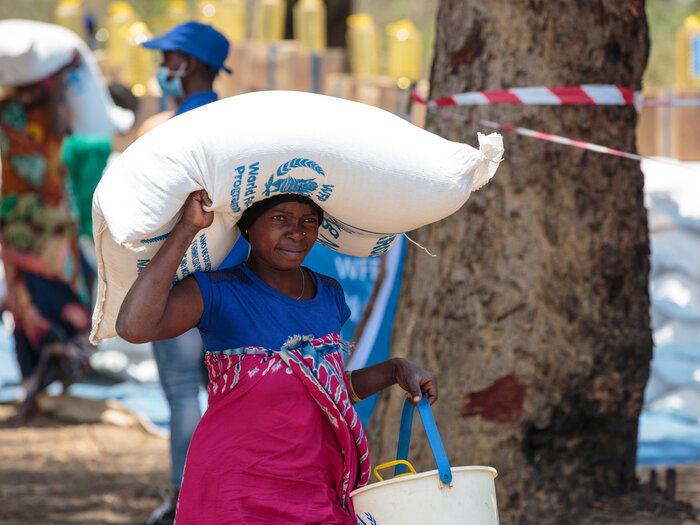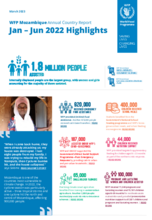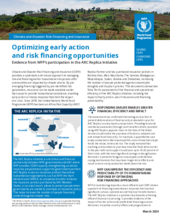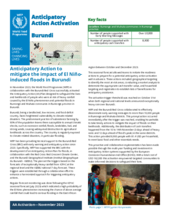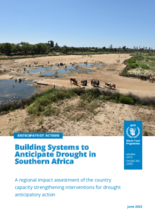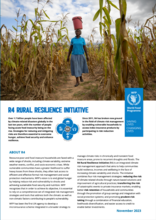Mozambique
- 54%
- of people cannot afford a nutritious diet
- 38%
- of children under 5 are stunted
- 32 million
- population
Located in southeast Africa, Mozambique is a low-income, food-deficit country with a large rural population of 20 million. It ranked 185 of 191 countries in the 2021 Human Development Index, 106 of 116 in the 2021 Global Hunger Index, and 136 of 170 in the 2021 Gender Inequality Index.
Independence in 1975 was followed by a 16-year civil war which ended in 1992. Relative peace and stability allowed Mozambique to make progress in social and economic terms, and by 2015 the country had achieved its Millennium Development Goal of halving the number of hungry people.
What the World Food Programme is doing in Mozambique
-
Emergency response
-
WFP assists over 1 million food-insecure people (including refugees, internally displaced and cyclone-affected people) in three northern provinces, and one in the south. We carry out life-saving initiatives such as food assistance, livelihood activities including providing seeds and agricultural kits, nutrition support and provision of school meals.
-
Nutrition
-
WFP offers capacity building and operational assistance to Government and local partners to implement strategies to reduce stunting, wasting and micronutrient deficiencies. WFP promotes multisectoral approaches to address malnutrition from a food system and health system perspective. This includes focusing on the first 1,000 days of a child’s life, and women’s empowerment and gender equality, by mainstreaming nutrition through integrated programming.
-
Climate resilience
-
WFP promotes a people-centered approach that strengthens community resilience to future shocks by adapting food systems to climate change. The strategy is based on six pillars: risk reduction through asset creation and better agricultural practices; agriculture support targeted at youth and women, ranging from conservation agriculture to post-harvest losses; prudent risk-taking using livelihood diversification and microcredit; village savings and loan associations under risk reserves; agriculture microinsurance under risk transfer; and forecast-based financing and anticipatory actions through disaster risk financing.
-
Disaster risk management and social protection
-
WFP works with the Government to strengthen its disaster risk management capacity, reducing the negative impact of climate shocks before they occur and the subsequent need for a humanitarian response. WFP uses innovative technology such as drones to conduct assessments and enable anticipatory humanitarian action, disaster response and shock-responsive social protection.
-
School feeding
-
WFP strengthens the Government’s school meals programme to reach more children affected by high levels of food insecurity. The National School Feeding Programme is built on three pillars: students’ nutritional and health status; nutrition education; and students’ agricultural production skills. WFP also provides complementary home-grown school meals and school meals in emergency or recovery settings, to increase access to healthy meals.
-
United Nations Humanitarian Air Service
-
The United Nations Humanitarian Air Service (UNHAS), managed by WFP, provides a safe, effective and efficient air transport service for humanitarian workers. It enables the delivery of life-saving assistance in hard-to-reach locations in northern Mozambique, to support people in areas where there are no other means of transportation due to insecurity and inaccessible roads. UNHAS is especially crucial during the cyclone season.
Mozambique news releases
Go to pageFind out more about the state of food security in Mozambique
Visit the food security analysis pageOperations in Mozambique
Contacts
Office
Rua 1109, perpendicular a Av. Paulo Samuel Kankhomba, Malhangalene A, KaMpfumo, Maputo
Mozambique
Phone
+258 21482200;+258 857110648

